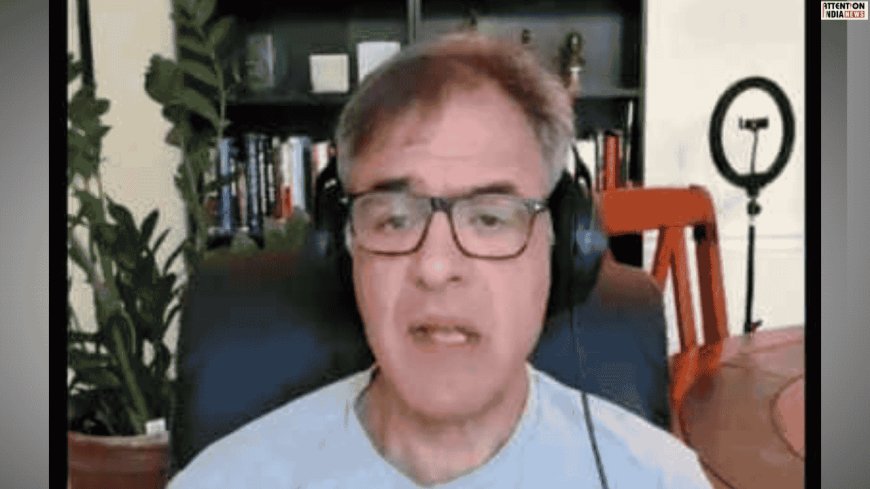Ex-CIA John Kiriakou: 2002 Parakram Nearly Sparked India–Pakistan Nuclear War; US–Pakistan Ties and Covert Deals Revealed
Former CIA officer John Kiriakou has disclosed that India and Pakistan were on the verge of a nuclear war at the height of Operation Parakram in 2002 after the Parliament attack (December 2001) was followed by a tense stand-off between the two armies.

New Delhi (India) October 25: A former high-ranking CIA officer and whistleblower revealed the use of waterboarding with al-Qaeda terrorists. He has been making bombshell revelations about covert US operations and Islamabad's relations with the US that influenced an intricate relationship which helped tip the regional scales of power in South Asia.
CIA feared the two sides were “charging towards war”
The trail of stunning disclosures has been made by John Kiriakou, a former officer in the US Central Intelligence Agency. The heightened tensions between India and Pakistan following the terrorist attack on Indian Parliament in December 2001 led the US intelligence community to believe that both nuclear-armed neighbours were "charging towards war" especially after the military confrontation as part of Operation Parakram.The CIA had expected the two countries to go to war.
US deputy secretary shuttled to de-escalate tensions
Kiriakou continued that the American deputy secretary went back and forth between India and Pakistan and worked for de-escalation. He added that following 9/11, the US was centred on Al-Qaeda and Afghanistan and so they “weren’t concentrating” on what was happening in India at the time.
Musharraf allegedly ceded nuclear control to US
The US even “bought” former Pakistan president, Pervez Musharaff by pouring millions of dollars into the country and in return, Musharaff gave the control of his country’s nuclear arsenal to the US.
He said, “Our relations with the Pakistani government were very, very good. It was General Pervez Musharraf at the time. And look, let's be honest here. The United States loves working with dictators. Because then you don't have to worry about public opinion and you don't have to worry about the media anymore. And so we essentially just purchased Musharraf.”
Describing how the United States had been given control of Pakistan’s nuclear weapons by Musharraf, Kiriakou said, “When I was stationed in Pakistan in 2002, I was told unofficially that the Pentagon controlled the Pakistani nuclear arsenal, that Musharraf had turned control over to the United States because he was afraid of exactly what you just described (nuclear weapons falling into terrorist hands).”
Musharraf's double deals
Kiriakou says Musharraf was double-dealing—supporting the US in counterterrorism but not cramping the terror style of groups attacking India.
John said, “He had to keep the military happy. And the military didn't care about al Qaeda. They cared about India. And so in order to keep the military happy and keep some of the extremists happy, he had to allow them to continue this dual life of pretending to cooperate with the Americans on counterterrorism while committing terror against India.”
Bhutto’s lavish exile
Kiriakou also remembered a “Marie Antoinette moment” with Bhutto when she was in exile in Dubai, noting how she resided in a “$5 million palace on the Gulf” while ordinary Pakistanis could hardly feed themselves.
He said, “When Benazir Bhutto was in exile in Dubai, I went to see her with another senior officer. I went as the note taker. And she lived in this $5 million palace on the Gulf. And we were sitting in the front room, the salon of the house, and we heard a car pull up. And she said, her exact words, so help me God, if he came home with another Bentley, I'm going to kill him!”

 Aadrika Tayal
Aadrika Tayal 





